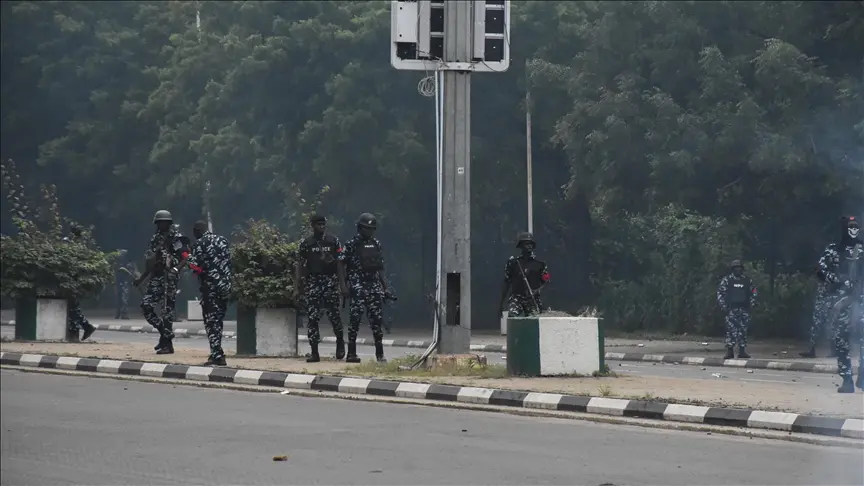
Recent days have brought chaos and economic hardship to Nigeria due to ongoing protests.
Security concerns have escalated in various states, particularly in the North West region.
Reports from police and government officials indicate incidents of property destruction and looting in Kaduna, Plateau, and Bauchi by criminals taking advantage of the protests.
In Abuja and other parts of the North, rioters were apprehended displaying Russian flags, with a tailor in Kano State arrested for mass-producing the flags.
The Russian Embassy in Nigeria has denied any involvement in the flag displays, which have been deemed treasonable by General Christopher Musa, the Chief of Defence Staff.
As violence continues to escalate on the fifth day of protests under the hashtag #endbadgovernance, Bauchi, Kaduna, and Plateau states have imposed 24-hour curfews.
Earlier, Borno, Kano, Katsina, Jigawa, and Zamfara states had also declared curfews in affected areas to prevent further disorder.
The imposition of curfews in these states has exacerbated the challenges facing the nation’s economy, which was already in decline.
Estimates suggest that Nigeria has lost around N600 billion in the past five days, with the protests risking a daily loss of N400 billion, according to the Centre for the Private of Private Centre.
These ongoing reports of violence and fear have significantly impacted investor confidence, leading to a loss of N92 billion at the Nigeria Exchange Limited.
Similarly, there was a sell-off of Nigeria Eurobonds due to the protests and resulting uncertainties.
Despite President Bola Ahmed Tinubu’s call for the suspension of protests to engage in dialogue, economic activities in Abuja remained subdued with limited patronage reported by businesses including Wuse Market, Banex Plaza, Dutse Market, and Utako Market.
While banks in the capital city operated with minimal staff, fuel shortages were observed in Abuja, Nasarawa, and Niger, with long queues at filling stations along Kubwa Expressway.
Financial Analyst Gbolade Idakolo emphasized the need for government action to address protesters’ demands and alleviate economic hardships, particularly by reducing food prices and ensuring tangible benefits for the citizens.
The Centre for the Promotion of Private Enterprise (CPPE) urged for the protests to be halted to prevent further economic deterioration, emphasizing the negative impact on businesses and daily economic activities.
Director Muda Yusuf warned of the prolonged protests leading to a slowdown in economic momentum, especially in a country where 90% of the economy relies on the private sector.
Dr. Uju Ogunbunka, President of the Bank Customers’ Association of Nigeria, echoed concerns over the economic fallout from the protests, citing stagnation in business activities and the need for swift resolution to prevent further damage to the economy.
